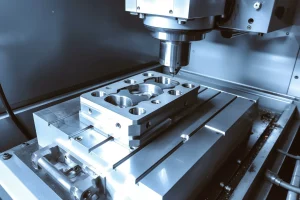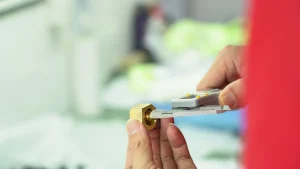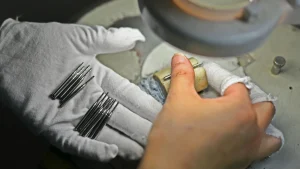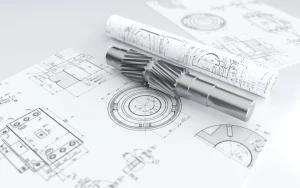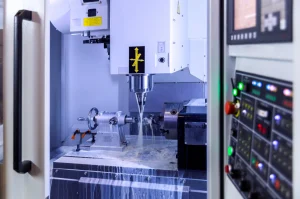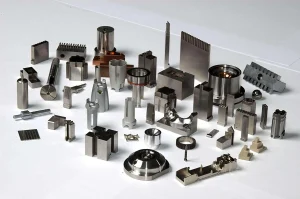In today’s highly competitive manufacturing industry, the demand for precision parts is on the rise. Whether it’s for the aerospace, automotive, medical, or electronics sectors, the need for high-quality, precisely machined components is crucial. CNC machining has emerged as a leading technology for producing precision parts, offering a level of accuracy and repeatability that is difficult to achieve with traditional machining methods. In this article, we will explore the requirements for CNC machining precision parts and the value that rapidefficient brings to the CNC machining market.
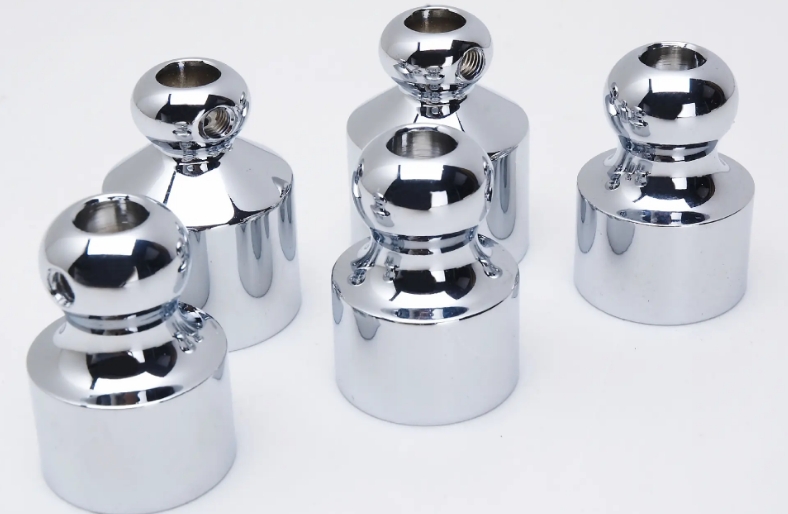
I. Introduction to CNC Machining
CNC (Computer Numerical Control) machining is a manufacturing process that uses computer-controlled machines to remove material from a workpiece to create a desired shape. The process involves programming a computer to control the movement of cutting tools, such as drills, mills, and lathes, to precisely shape the workpiece. CNC machining can be used to create a wide variety of parts, from simple to complex geometries, with high levels of accuracy and repeatability.
II. Requirements for Precision Parts
- Accuracy
The most important requirement for precision parts is accuracy. The part must be machined to within very tight tolerances to ensure proper fit and function. Accuracy is measured in terms of dimensional tolerance, which is the allowable variation in size and shape of the part. For precision parts, dimensional tolerances can be as small as a few microns.
- Surface Finish
In addition to accuracy, the surface finish of the part is also important. A smooth surface finish is required to ensure proper mating of parts and to reduce friction and wear. Surface finish is measured in terms of roughness average (Ra), which is the average height of the surface irregularities. For precision parts, Ra values can be as low as a few nanometers.
- Material Selection
The choice of material is also crucial for precision parts. The material must have the required mechanical properties, such as strength, hardness, and ductility, to withstand the stresses and loads that the part will be subjected to. Additionally, the material must be compatible with the machining process and be able to be machined to the required accuracy and surface finish.
- Design Considerations
The design of the part also plays a significant role in its precision. The part should be designed with features that are easy to machine and that minimize the potential for errors. Additionally, the design should take into account the machining process and any limitations or constraints that may affect the accuracy and surface finish of the part.
III. CNC Machining Processes for Precision Parts
- Milling
Milling is a common CNC machining process that uses a rotating cutting tool to remove material from a workpiece. Milling can be used to create a wide variety of shapes and features, including flat surfaces, slots, pockets, and contours. Milling can be performed on a variety of materials, including metals, plastics, and composites.
- Turning
Turning is another common CNC machining process that uses a rotating workpiece and a stationary cutting tool to remove material. Turning is typically used to create cylindrical shapes, such as shafts, pins, and bushings. Turning can be performed on a variety of materials, including metals, plastics, and composites.
- Drilling
Drilling is a process that uses a rotating cutting tool to create holes in a workpiece. Drilling can be performed on a variety of materials, including metals, plastics, and composites. Drilling can be performed using a variety of tools, including twist drills, center drills, and reamers.
- Grinding
Grinding is a process that uses an abrasive wheel to remove material from a workpiece. Grinding is typically used to achieve very high levels of accuracy and surface finish. Grinding can be performed on a variety of materials, including metals, ceramics, and glass.
IV. Quality Control for Precision Parts
Inspection
Inspection is an essential part of the quality control process for precision parts. Inspection can be performed using a variety of methods, including coordinate measuring machines (CMMs), optical comparators, and micrometers. Inspection should be performed at various stages of the machining process to ensure that the part is being machined to the required accuracy and surface finish.
Testing
Testing is also an important part of the quality control process for precision parts. Testing can be performed to ensure that the part meets the required mechanical properties, such as strength, hardness, and ductility. Testing can be performed using a variety of methods, including tensile testing, hardness testing, and impact testing.
Traceability
Traceability is important for precision parts to ensure that they can be traced back to their source in the event of a quality issue. Traceability can be achieved by recording the manufacturing process, including the materials used, the machining parameters, and the inspection results.
V. The Value of Rapidefficient in the CNC Machining Market
Rapidefficient is a leading provider of CNC machining services, specializing in the production of precision parts. The company offers a wide range of services, including milling, turning, drilling, grinding, and quality control. Rapidefficient’s expertise in CNC machining and its commitment to quality make it a valuable partner for businesses in various industries.
High-Quality Parts
Rapidefficient uses state-of-the-art equipment and processes to ensure that the parts it produces are of the highest quality. The company’s strict quality control measures ensure that every part meets the required accuracy and surface finish.
Fast Turnaround Times
Rapidefficient understands the importance of time in the manufacturing process. The company offers fast turnaround times, ensuring that customers receive their parts on time.
Cost-Effective Solutions
Rapidefficient offers cost-effective solutions without sacrificing quality. The company’s efficient processes and competitive pricing make it an attractive option for businesses looking to reduce manufacturing costs.
Customized Solutions
Rapidefficient works closely with customers to understand their specific needs and requirements. The company offers customized solutions, ensuring that every part is designed and machined to meet the customer’s exact specifications.
- Technical Expertise
Rapidefficient’s team of experienced engineers and technicians has extensive knowledge of CNC machining and its applications. The company offers technical expertise and support throughout the manufacturing process, ensuring that customers receive the best possible service.
VI. Conclusion
CNC machining is a crucial technology for producing precision parts. The requirements for precision parts, including accuracy, surface finish, material selection, and design considerations, must be carefully considered to ensure that the parts meet the required specifications. Quality control is also essential to ensure that the parts are of the highest quality. Rapidefficient is a leading provider of CNC machining services, offering high-quality parts, fast turnaround times, cost-effective solutions, customized solutions, and technical expertise. If you are looking for a reliable and experienced CNC machining service provider, look no further than Rapidefficient.

